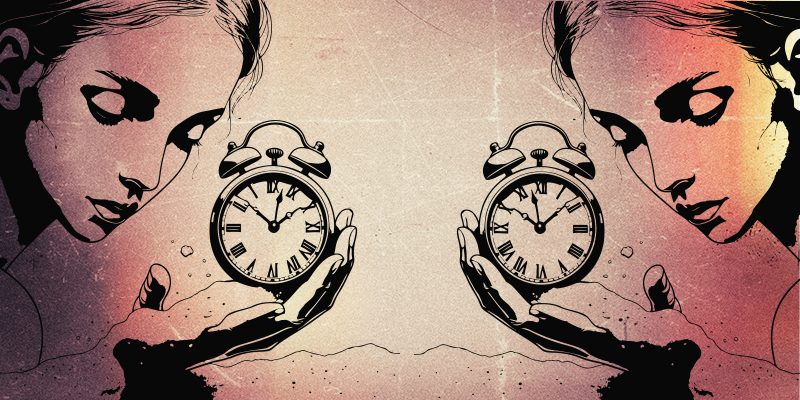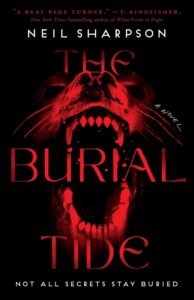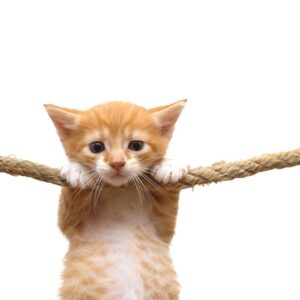You know what I’ve found myself warming to as I get older? Death.
Don’t worry, you don’t have to make a welfare check or anything, I just mean I’m coming more and more round to Terry Pratchett’s view that the wise man views death as a friend.
It’s the ultimate leveller, coming for rich and poor alike. Granted, it comes for the latter with a brisk trot and the former with a lazy slouch but it comes, that’s the point. It’s the one thing that unifies every single one of us.
It defines us. What’s another word for human? Mortal.
We still fear death of course, I certainly do. Come into the room and point a gun at my head and I’m not going to look back at you with a calm sage-like gaze and thank you for the opportunity to be one with the cosmos. But there are scarier things than death. To paraphrase Wilde, the only thing worse than dying is not dying.
Wilde gave us one of the most famous examples of the dangers of immortality with The Picture of Dorian Gray, where the titular Victorian twink unwittingly becomes spiritually bonded to his own portrait so that it ages while he remains forever young. Wilde astutely recognised that our sense of morality and duty to our fellow humans stems from our mortality. If we are permanent, everything else becomes transient and therefore meaningless. The people we hurt will eventually age and wither away. We’ll still be here. So who cares?
Taboos that seem cultural or moral are often rooted in medical necessity. The Israelites were forbidden from eating the flesh of vultures, most likely because of the risk of infection and parasites from eating carrion fowl. But it was not couched in those terms. “You might get sick” carries little weight with a man who’s half-starved. “God will punish you if you eat that unclean bird” packs more of a punch. But for an immortal, taboos are meaningless. Why shouldn’t Dorian Gray drink, smoke and imbibe opium (or eat vulture if the fancy takes him?). What does he have to lose?
Not all immortals are creepy libertines of course. Our fiction and mythologies are full of benign gods, angels and wizards who manage to remain both ageless and noble. But, to quote a very wise beaver, “those were the ones least like men”. Anything that starts off as a human being and gains immortality? Feel for your hatchet.
Vampires are, appropriately, ageless. They’re never not in fashion. Wherever you sit on the political spectrum, vampires hold sway. There are always wealthy, parasitical aristocrats drinking the blood of the poor and downtrodden. There are always effete, depraved hedonists poisoning all that is good and decent in the world. They are the great unifying, bipartisan monster. And while vampires vary greatly across works in terms of their lore and aesthetics, three elements remain almost ubiquitous:
Drinking blood.
Immortality.
Cruelty.
That’s another thing we owe to death: Kindness. Kindness is a recognition that we are all only here for a brief time. Immortals, whether Dorian Gray seducing a string of vulnerable young women and men and abandoning them to social disgrace, or Lord Ruthven destroying a man’s life over a minor inconvenience, or Dracula feeding a baby to his brides, are marked by a total absence of empathy.
It’s tempting of course. We all like to fantasize about living without constraints. But like most fantasies, I suspect it would be shockingly disappointing in reality. In my own novel, The Burial Tide, the inhabitants of the remote Irish island of Inishbannock are not quite immortal but they’re not exactly not either (sorry, I will not be more forthcoming, I have bills to pay). We’re introduced to the islanders in the persons of Conn and his brother Malachy, two old men playing strip poker while getting blitzed on whiskey. They don’t do it out of any perverse sexual attraction. They just do it because they’re bored. Conn marvels that his younger sister Gráinne still seems to have a zest for life. Still looking after her family, still involving herself in the community, still running a business, still living…
But one day she’ll have to stop pretending that any of it matters.
It’s only a matter of time. Because time is all she has.
We’re not built for infinite time, just like we’re not built for infinite money. It breaks the brain. When you see Elon Musk sieg heiling in front of the whole world you’re looking at a man who’s lost any connection to humanity because in a very real way, he’s no longer human. How can you have a normal relationship with someone that wealthy? Who is simply too rich for the normal rules of human society to have any real sway over him? Much as I hate the man, I also pity him. He can never be sure that a single iota of affection or love he is ever shown is genuine. Indeed, the only thing I and someone like Musk have in common any more is our mutual friend with the scythe.
The tech-bros trying to put him out of a job too, of course, just like the rest of us. Peter Thiel famously either took blood transfusions from children to extend his life or falsely spread that rumour because he wants you to think he does that (which is not really that much less unsettling). And, every so often you hear some breathless reporting about genetic editing to shut off the ageing process for good (in the sixties it was cryonics, in the coming decades it’ll probably be some bullshit that includes the term “AI”). I used to get a little frisson of panic when I read stories like that, imagining immortal Musks’ and Bezos’ ruling a world of mortal peasants for all eternity.
Now, I wish them well in their endeavours. I can think of no one who deserves eternal life on this Earth more.
I’ll be safe and snug in my grave while they’re sitting around getting drunk on whiskey and playing strip poker just to feel something.
***


















